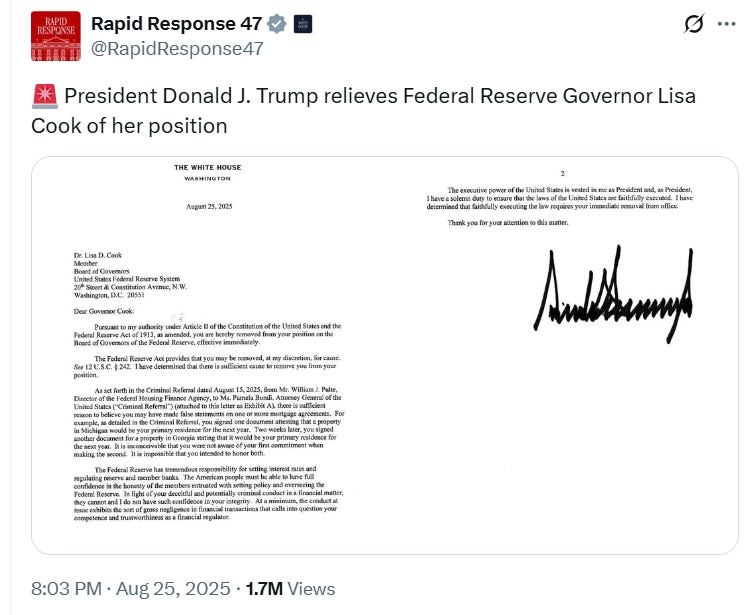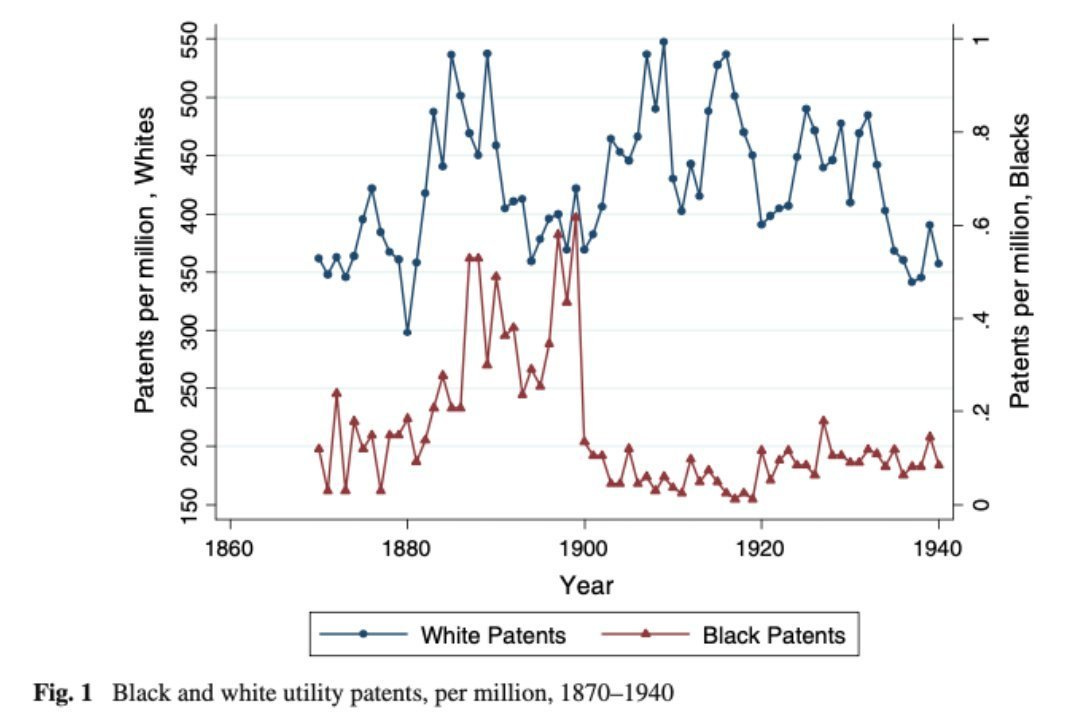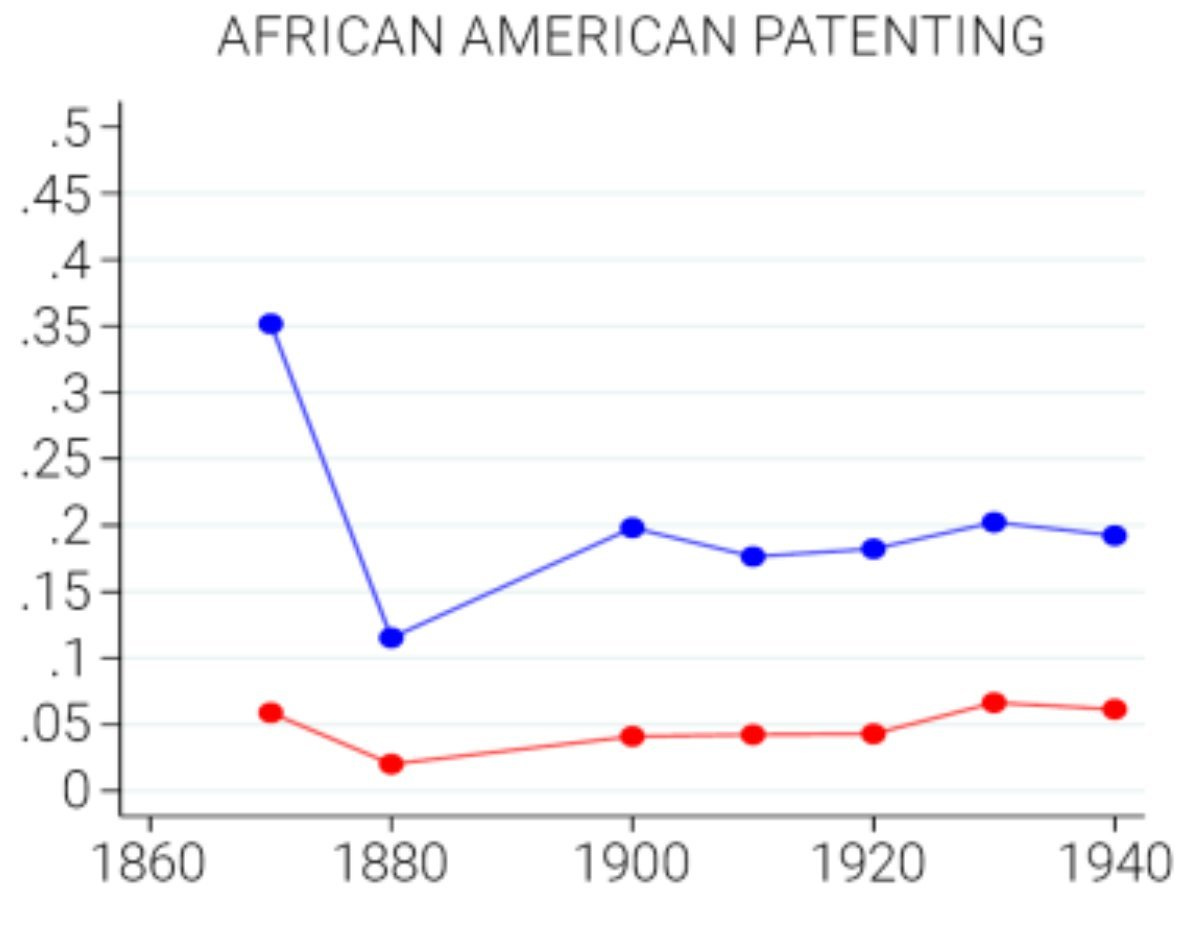Good Riddance To Lisa Cook
Why President Trump firing the Fed Governor is bullish.
Trump Fires Federal Reserve Governor Lisa D. Cook
Last night, President Trump fired Federal Reserve Governor Dr. Lisa D. Cook, after the Bill Pulte, the director of the Federal Housing Finance Agency, asked the Department of Justice to investigate her for suspected mortgage fraud.
A number of commenters suggested this was a bearish development as it might impact the independence of the Federal Reserve, but I disagreed:
Firing a DEI Fed governor who flubbed her most famous paper and may have committed mortgage fraud is bullish. It shows America is tacking away from corruption and incompetence.
For those unfamiliar with the Cook backstory, Jonatan Pallesen summarized it on X:
Trump has fired Lisa Cook from the board of the Federal Reserve.
This is great news, because Lisa Cook is an unqualified, inept diversity hire.
Her publication record is thin, and focused mostly on racial issues, not monetary policy. As economist John Cochrane noted: "[In her publication] you will find essentially nothing related to monetary policy, monetary effects on employment, interest rates, inflation, financial regulation or other traditional Fed topics."
She was clearly hired for DEI reasons, to be the first Black woman on the board.
Worse still, she is not only unqualified but an unusually inept researcher.
Her most publicized paper, published in 2014, claimed that Black patents declined in 1900 due to racial violence.
But the decline had nothing to do with that. It was simply an artifact of her own dataset.
-----
Explanation: Cook’s dataset included 726 inventors, compiled from several sources. The single biggest source was the 1900 World’s Fair, which showcased nearly 400 African American inventors. Crucially, that record ended at 1900.
This meant her dataset was front-loaded: almost half of the data points came from a source that stopped at exactly 1900. Naturally, once that source ended, the data appeared to collapse.
Instead of recognizing that this was an artifact of her own collection, Cook attributed the decline to racial violence and lynchings.
Later, The Brookings institute looked at the number of Black patents, and identified ~50,000 patents over this same period, instead of the 726. And they found no significant decline around year 1900, proving that this was just an artifact of her data set.
-----
This embarrassing blunder gave her a lot of publicity, and caused her to fail upwards, ultimately being hired for the important job in the board of the Federal Reserve.
Here is the figure from her study, showing a collapse in the number of Black patents recorded exactly at 1900, when the world's fair exhibition took place.
And here is data from the Brookings Institute, identifying 50,000 patents, showing that there was in fact no real decline in Black patents in the year 1900 (red line).
It is worth dwelling on how exceedingly obvious this problem is. Of course, if you get most of your data points from a source that ends in 1900, you will have fewer data points after that. You should not start drawing conclusions about society from this.






